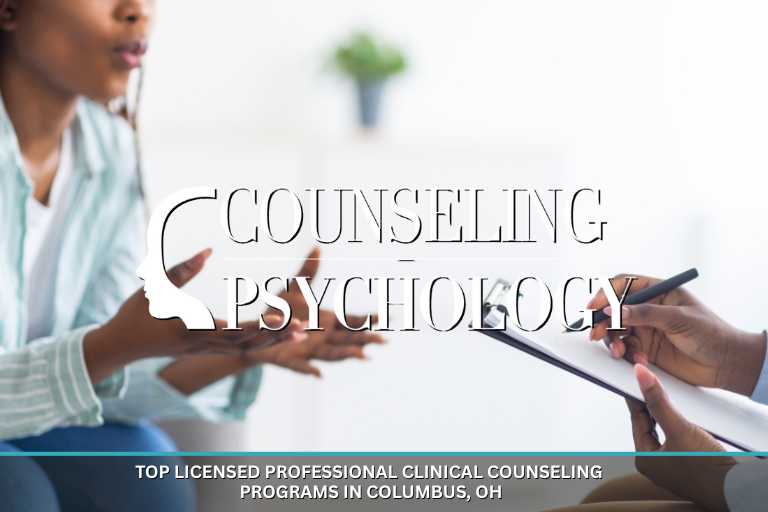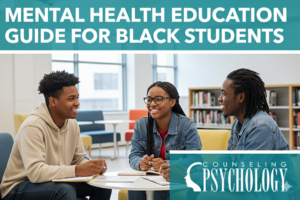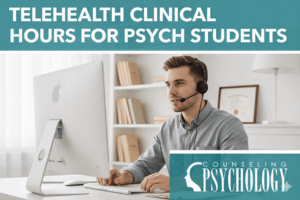Top Licensed Professional Clinical Counseling Programs in Columbus, OH

With rising demand for mental health services across Ohio, Columbus has become a vibrant hub for aspiring licensed professional clinical counselors (LPCCs). Whether entering the field or changing careers, earning a master's in clinical mental health counseling in Columbus offers a strong foundation to join a critical and growing profession. The city boasts a dynamic healthcare ecosystem, progressive public policies, and a network of institutions that support counselor development from education through licensure.
According to the Bureau of Labor Statistics, employment for substance abuse, behavioral disorder, and mental health counselors is projected to grow by 18% through 2032—much faster than the national average. through 2032—much faster than the national average. In Ohio, initiatives such as RecoveryOhio and expanded Medicaid services have increased access to mental health care, leading to an urgent need for credentialed professionals statewide. Columbus, as the state’s capital and most populous city, is uniquely positioned with diverse populations, strong community partnerships, and top-tier academic institutions that prepare LPCCs for practice. The region’s cultural diversity and socio-economic variety provide rich learning contexts for future counselors to gain experience in multiple therapeutic approaches and client needs.
This guide outlines the top CACREP-accredited programs in Columbus, explores their unique offerings, and highlights local practicum and licensure pathways to support an informed decision when selecting a counseling program. It also provides practical information on financial aid, the local job market, and ongoing professional development resources that strengthen long-term career success.
2025 Top LPCC Programs in Columbus
| Rank | School & City | Degree & Track | Delivery Format | Credits | Typical Time | Highlights & Why It Stands Out |
| 1 | Ohio State University – Columbus ehe.osu.edu | M.A. in Counselor Education — Clinical Mental Health Counseling | On-campus (day/evening) | 61 | ≈ 2–2½ yrs full-time | Flagship public program; 100 % completion, NCE pass & job-placement rates; 700 hr practicum/internship series meets Ohio LPC→LPCC licensure hours. |
| 2 | Capital University – Bexley (metro Columbus) capital.edu | M.A. in Clinical Mental Health Counseling | Evening face-to-face (some hybrid) | 64 | ≈ 2 yrs full-time cohort | CACREP-accredited; all classes after 4:30 p.m.; 100-hr practicum + 600-hr internship; small-cohort feel for working adults. |
| 3 | University of Dayton – Columbus (Dublin) Campus udayton.edu | M.S.Ed. in Clinical Mental Health Counseling | Hybrid (evening Columbus sessions + some online) | 60 | ≈ 2½ yrs | CACREP-accredited; optional dual-licensure with School Counseling; Ecotherapy certificate add-on; classes offered in both Columbus & Dayton for flexibility. |
| 4 | Ashland Theological Seminary – Columbus Center seminary.ashland.edu | M.A. in Clinical Mental Health Counseling | Hybrid — 1 cohort day/week on-site + online work | 64 | 2½–3 yrs | Faith-integrated CACREP program; 89.6 % NCE pass rate; meets all Ohio LPCC requirements; cohort structure supports working professionals. |
| 5 | Franklin University – Columbus (online-first) franklin.edu | M.S. in Clinical Mental Health Counseling† | 100 % Online with short Columbus residencies (planned) | 60 (planned) | ≈ 2 yrs | Designed for working adults; no GRE; tuition locked at ~$670/credit for 2025 launch; CACREP candidacy in progress—verify status if immediate licensure is critical. |
† Franklin University's CMHC program launches its first cohort in 2025 and is currently in CACREP candidacy. Confirm full accreditation before enrolling if you need licensure-ready status upon graduation.
What to Look for in an LPCC Program in Columbus
Understanding the foundational qualities of a strong LPCC program ensures alignment with licensure goals and career aspirations. The following attributes help define the most effective graduate programs:
Key Accreditation Standards
Programs accredited by the Council for Accreditation of Counseling and Related Educational Programs (CACREP) meet national standards for curriculum, faculty qualifications, and clinical preparation, directly aligning with Ohio licensure requirements. Accreditation also enhances portability of licensure across states, which is important for professionals planning to relocate or work in telehealth settings. meet national standards for curriculum, faculty qualifications, and clinical preparation, directly aligning with Ohio licensure requirements. Accreditation also enhances portability of licensure across states, which is important for professionals planning to relocate or work in telehealth settings.
Clinical Training and Site Partnerships
Ohio mandates at least 600 hours of supervised internship experience. Top programs maintain formal agreements with clinics, hospitals, and community agencies across Columbus to provide hands-on training with diverse populations. A strong clinical partnership framework not only ensures skill development but also offers students direct access to networking and employment opportunities.
Expert Faculty and Curriculum Innovation
Faculty with active research agendas and clinical experience foster dynamic classroom environments. Areas of strength in Columbus programs include trauma-informed care, identity development, multicultural counseling, and integrative therapies. Curricula often include emerging areas such as digital mental health tools, crisis intervention, and advocacy for underserved populations.
Licensure-Ready Program Structure
The educational pathway in Ohio involves LPC credentialing, followed by supervised practice and the NCMHCE exam for LPCC status. The best programs provide a structured, guided approach for meeting each licensure milestone. Many offer built-in exam preparation, portfolio development support, and mentorship during the post-graduation supervision phase.
Practicum and Internship Sites in Columbus
Columbus is home to a diverse array of clinical training environments for LPCC students. Internship placements provide essential supervised hours and opportunities to work with varied client populations. These experiences help students integrate theory with practice and gain confidence in a professional setting.
Top Practicum Sites Include:
- Southeast Healthcare Services – Holistic care integrating primary, behavioral, and housing services
- Nationwide Children's Hospital – Behavioral Health Pavilion – Pediatric-focused mental health care
- Syntero, Inc. – Community-based counseling across the lifespan
- Columbus City Schools – School-based mental health counseling
- North Community Counseling Centers – Affordable care with multilingual support
Many Columbus-area programs establish formal partnerships with these agencies, enhancing continuity from education to employment. These partnerships are often mutually beneficial, as agencies gain access to a steady pipeline of well-trained emerging professionals.
Pathway to Licensure for LPCCs in Ohio
After completing a qualifying graduate degree, the following steps are required to obtain LPCC licensure in Ohio:
- Graduate from a CACREP-accredited master's program in Clinical Mental Health Counseling
- Pass the National Counselor Examination (NCE) to earn LPC status
- Accumulate 3,000 hours of post-degree supervised clinical practice
- Pass the National Clinical Mental Health Counseling Examination (NCMHCE)
- Submit the application to the Ohio Counselor, Social Worker, and Marriage & Family Therapist Board
Counseling programs often include licensure preparation support, and many graduates complete post-degree supervision at the same agencies where they completed internships. Those seeking the LPCC credential should keep detailed records of supervision hours and verify that their supervisors meet state board criteria.
Local Job Market and Career Outlook
Columbus offers a dynamic employment landscape for LPCCs, driven by population growth and investment in mental health infrastructure. Opportunities span public health, education, hospitals, and nonprofit sectors. Employers increasingly seek clinicians with specialized expertise in trauma, addiction, family systems, and culturally competent care.
Leading Employers in the Region:
- The Ohio State University Wexner Medical Center
- Netcare Access – Crisis and stabilization services
- Maryhaven – Addiction recovery and mental health support
- Columbus Public Health
- Buckeye Ranch – Child and adolescent counseling
According to the Bureau of Labor Statistics, the median salary for LPCCs in Ohio is $54,990, with potential for higher earnings in specialized or supervisory roles. Mental health counselors employed in hospital settings or those who establish private practices may earn above-average salaries and benefit from flexible work arrangements.
Financial Aid and Scholarships
Columbus-based programs offer financial support options to help students manage tuition costs and reduce debt. Many institutions also provide assistance with financial planning and access to federal or state-funded programs.
- Choose Ohio First scholarship – Incentivizes mental health careers in Ohio
- Franklin University awards – Merit- and need-based scholarships
- Ohio Dominican assistantships – Tuition waivers and stipends for graduate assistants
- NHSC loan repayment – For LPCCs in Health Professional Shortage Areas
- Eligibility for TEACH grants and public service loan forgiveness (PSLF)
Proactive financial planning can make graduate study more accessible while aligning future employment with repayment incentives. Students are encouraged to apply early, explore employer-sponsored tuition benefits, and consider loan forgiveness programs tied to public service.
Moving Forward in Clinical Counseling
Columbus provides a robust ecosystem for aspiring LPCCs, offering accredited academic programs, expansive clinical training networks, and a growing job market. Selecting the right graduate program is a pivotal step in building a meaningful counseling career rooted in ethical care and community service.
Consider program fit, clinical partnerships, scheduling flexibility, and licensure outcomes when evaluating schools. Additional factors such as faculty mentorship, support services, and alumni networks can also play a significant role in long-term success. With the right foundation, graduates can contribute to improved mental health outcomes throughout central Ohio and beyond. Continued professional development, engagement with local associations, and a commitment to lifelong learning will sustain impact over the course of a counseling career.
Sources
- Bureau of Labor Statistics – Mental Health Counselors
- Council for Accreditation of Counseling and Related Educational Programs (CACREP)
- Ohio Counselor, Social Worker, and Marriage & Family Therapist Board
- RecoveryOhio
- Nationwide Children's Hospital – Behavioral Health



